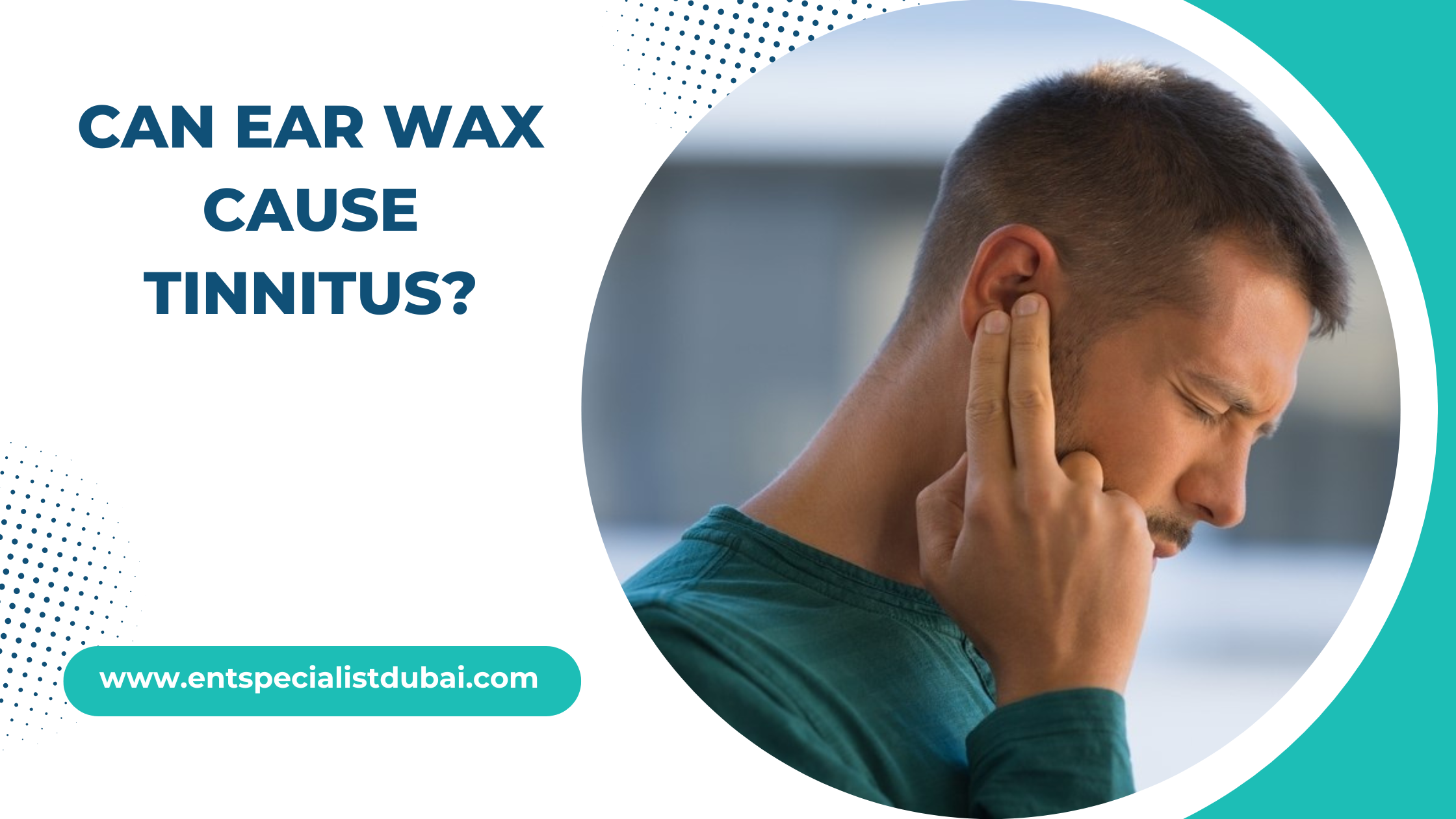The reasons behind sharp throat and ear pain - How to deal with them?

Do you ever wonder, ‘Why does my ear hurt when I swallow”?
It’s not only uncomfortable but can also be quite worrying. Read on to find out the common causes of throat and ear pain, explore the symptoms to look out for, discuss how to deal with sinus ear pain, and introduce you to an expert who can help – Dr. Peter Baptista.
Understanding sharp throat and ear pain: Causes and remedies
Sharp throat and ear pain isn’t just a nuisance; it can greatly affect your day-to-day life.
Whether it stems from tonsillitis, a deviated nasal septum, or sinus infections, understanding the source of this pain is crucial.
We’ll explore various conditions, such as tonsillitis vs. strep throat and sinus-related issues, and discuss symptoms, such as bleeding from the ear and sudden stabbing pain in the ear.
1- Tonsillitis vs strep throat: Identifying the difference
Understanding tonsillitis and strep throat is crucial, as both conditions can cause intense throat pain and discomfort.
Tonsillitis, an inflammation of the tonsils, can be caused by viruses and bacteria and often leads to symptoms like swollen tonsils, sore throat, and difficulties in swallowing.
Strep throat, specifically caused by the Streptococcus bacteria, presents similar symptoms but requires different treatment. Both tonsillitis and strep throat can cause sharp pain in the throat, highlighting the need for proper diagnosis and treatment.
2- Mononucleosis
This infectious condition, often known as mono, is brought on by a virus. The symptoms may be severe and persist for a few weeks.
Although anyone might have the symptoms, most people who experience them are in their teens and early 20s. Typically, concurrent symptoms include weakness, ear fullness, and fatigue.
3- Allergies
Dust and pollen inflame mucous membranes, triggering allergies. Nasal congestion and sneezing may also occur. Keep your nostrils clean and stay away from triggers.
4- Acid reflux
Acid reflux is a frequent medical ailment that develops when stomach acid or its contents escape the stomach and enter the esophagus again.
You might notice that your symptoms worsen after a large meal or when lying down. Heartburn is the most common symptom, but indigestion and a lump in the throat are also possible.
5- Chronic sinus issues and ear pain
Due to the interconnected nature of sinus and ear canals, sinus infections often lead to sinus ear pain. A clogged ear sinus infection can cause discomfort and a sensation of fullness in the ear, along with sudden stabbing pain or sharp pain in the ear.
These symptoms can be exacerbated when the sinus infection worsens, leading to more frequent and intense sharp pain in the ear.
6- External irritants
Smoke and chemical inhalation might irritate your throat, nose, and eyes. Among the irritants are:
- Chlorine and smoke
- Wood dust, Industrial cleaning supplies, and oven cleaner
- Cement
If you work with irritants or spend time with them for any purpose, try to wear protection or reduce your exposure.
7- Air pressure changes
Sudden changes in altitude, like during air travel, scuba diving, or driving through hilly terrain, can lead to ear barotrauma. This occurs when there’s a difference between the air pressure inside your ear and outside, causing discomfort or pain.
Along with ear pain, you might experience symptoms such as dizziness, hearing loss, fullness or pressure in the ears, and even nosebleeds. The feeling of “popping your ears” happens when actions like yawning or chewing gum open the eustachian tubes and balance the pressure.
If your ear discomfort continues for more than a few hours or is joined by symptoms like fever, intense pain, or ear drainage, it’s essential to get medical help. Left untreated, severe ear barotrauma can potentially damage the eardrum or result in hearing loss.
8- Dental pain and ear discomfort
Ear pain doesn’t always originate from the ear itself. In some cases, dental problems may be the actual cause. Common dental issues that can lead to referred ear pain include:
- Tooth abscesses
- Cavities
- Impacted molars
To find out if your teeth are causing the pain, a healthcare provider may press on your teeth or gums to see if they’re sensitive or sore. If you’re experiencing this type of pain, it may be worth exploring what causes toothaches.
9- Swimmer’s ear
Pain when tugging on your earlobe or pressing the small flap (called the tragus) near your ear opening is often a sign of swimmer’s ear—an outer ear canal infection. Swimmer’s ear often occurs when water gets stuck in the ear, providing a damp space for bacteria to thrive.
ymptoms may include redness, swelling, itching, and sometimes pus drainage. A swimmer’s ear doesn’t spread to others, but you can avoid it by ensuring your ears stay dry before, during, and after water activities. Treatment typically involves antibiotic ear drops prescribed by your doctor.
10- Deviated nasal septum
A deviated nasal septum can significantly contribute to these issues.
Deviated nasal septum symptoms
Common symptoms of a deviated nasal septum include one-sided nasal congestion and recurring sinus infections, which can exacerbate sinus and ear pain.
If you experience chronic sinus ear pain and nasal congestion, it may be worth investigating whether a deviated nasal septum is involved.
11- Eustachian tube's role in ear pain when swallowing
The intricate connection between your ears and throat is mainly due to the Eustachian tube. This small passage links the middle ear to the back of the throat (nasopharynx).
Its primary role is to balance the pressure between the middle ear and the outside environment, which helps maintain normal hearing. It also helps to drain fluids from the middle ear.
When you swallow, yawn, or chew, the muscles in the back of your throat contract. These contractions can briefly open the eustachian tube. This opening allows air to enter or exit the middle ear, helping to regulate pressure.
If this tube becomes blocked or inflamed, it can lead to a sensation of pressure, fullness, and even pain in the ear, particularly when these throat muscles are activated during swallowing.
Common culprits behind ear and throat pain when swallowing
Beyond the conditions already discussed, several other factors can contribute to ear pain that worsens when you swallow. These often involve inflammation or blockage affecting the eustachian tube or surrounding structures.
- Ear infections (Otitis media): Swallowing may make the pain from an ear infection feel sharper, as it affects the pressure in the middle ear while the eustachian tube attempts to adjust it.
- Eustachian tube dysfunction occurs when the eustachian tube doesn’t open or close correctly. Allergies, colds, sinus infections, or even shifts in altitude can trigger this condition.
Symptoms can include ear fullness, popping or clicking sensations, and pain that may intensify with swallowing.
- Temporomandibular joint (TMJ) disorders: The TMJ connects the jawbone to the skull near the ear. TMJ problems can cause pain radiating to the ear and may be aggravated by jaw movements involved in swallowing.
- Referred pain: Sometimes, the ear pain doesn’t originate from the ear itself. Conditions affecting the throat, such as a sore throat from a common cold or even a dental issue, can cause referred pain to the ear, which may be more noticeable when swallowing activates the throat muscles.
When should you be concerned about ear pain when swallowing?
While mild and temporary ear discomfort during swallowing can often resolve independently, specific symptoms warrant medical attention. It’s essential to consult an ENT specialist, such as Dr. Peter Baptista, if you experience any of the following:
- Severe or persistent ear pain, especially if it lasts for more than a day or two.
- Bleeding or discharge from the ear.
- Hearing loss or dizziness.
- High fever.
- Swelling or redness around the ear.
- Ear pain accompanied by difficulty swallowing or breathing.
- Recurrent episodes of ear pain with swallowing.
Contact With Us
Consult Dr. Peter to find relief from sudden pain in the ear
Ear pain during swallowing can be concerning, but recognizing the potential reasons and understanding when to seek medical advice is the first step to feeling better.
Dr. Peter Baptista is a dedicated specialist with extensive experience diagnosing and treating many ear, nose, and throat conditions, including those causing sharp throat and ear pain. Dr. Peter Baptista will carefully assess your symptoms and medical history, allowing for an accurate identification of the cause of your pain.
Following the assessment, he will develop a treatment strategy tailored to your individual situation, including options like medication, lifestyle changes, or other treatments.
Don’t allow the uncertainty and discomfort of ear pain while swallowing to interfere with your daily life. Book a consultation with Dr. Peter Baptista today to get the answers you need, receive expert treatment, and achieve long-lasting relief. Your path to improved ear and throat health begins now.

Dr Peter Baptista Jardin
European Board Certified ENT Doctor In Dubai
Dr. Peter Baptista Jardin is an ENT specialist with a special interest in treating sleep apnea. He is a revered expert in Spain for performing the first ever robotic transoral surgery in 2011, and the only series of hypoglossal nerve stimulation proved revolutionary for obstructive sleep apnea treatment worldwide. He currently serves as an ENT doctor in Dubai’s Al Zahra Hospital.




